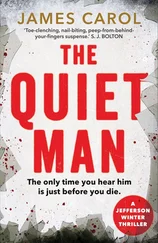The ten-mile journey to his home in fact covered over twenty-five miles and took him twice as long as it had done before the construction of the expressway, the additional miles contained within the three giant cloverleafs. New cities were springing from the motels, caf6s and car marts around the highways. At the slightest hint of an intersection a shantytown of shacks and filling stations sprawled away among the forest of electric signs and route indicators, many of them substantial cities.
All around him cars bulleted along, streaming toward the suburbs. Relaxed by the smooth motion of the car, Franklin edged outward into the next speed lane. As he accelerated from 40 to 50 mph a strident, ear-jarring noise drummed out from his tires, shaking the chassis of the car. Ostensibly as an aid to lane discipline, the surface of the road was covered with a mesh of smaller rubber studs, spaced progressively farther apart in each of the lanes so that the tire hum resonated exactly on 40, 50, 60 and 70 mph. Driving at an intermediate speed for more than a few seconds became physiologically painful, and soon resulted in damage to the car and tires.
When the studs wore out they were replaced by slightly different patterns, matching those on the latest tires, so that regular tire changes were necessary, increasing the safety and efficiency of the expressway. It also increased the revenues of the car and tire manufacturers, for most cars over six months old soon fell to pieces under the steady battering, but this was regarded as a desirable end, the greater turnover Judith started to protest he added firmly: “Look, I don’t want a new infrared barbecue spit, we’ve only had this one for two months. Damn it, it’s not even a different model.”
“But, darling, don’t you see, it makes it cheaper if you keep buying new ones. We’ll have to trade ours in at the end of the year anyway, we signed the contract, and this way we save at least twenty dollars. These Spot Bargains aren’t just a gimmick, you know. I’ve been glued to that set all day.” A note of irritation had crept into her voice, but Franklin sat his ground, doggedly ignoring the clock.
“Right, we lose twenty dollars. It’s worth it.” Before she could remonstrate he said: “Judith, pleas e, you probably took the wrong number down anyway.” As she shrugged and went over to the bar he called: “Make it a stiff one. I see we have health foods on the menu.”
“They’re good for you, darling. You know you can’t live on ordinary foods all the time. They don’t contain any proteins or vitamins. You’re always saying we ought to be like people in the old days and eat nothing but health foods.”
“I would, but they smell so awful.” Franklin lay back, nose in the glass of whiskey, gazing at the darkened skyline outside.
A quarter of a mile away, gleaming out above the roof of the neighborhood supermarket, were the five red beacon lights. Now and then, as the headlamps of the Spot Bargainers swung up across the face of the building, he could see the square massive bulk of the giant sign clearly silhouetted against the evening sky.
“Judith!” He went into the kitchen and took her over to the window. “That sign, just behind the supermarket. When did they put it up?”
“I don’t know.” Judith peered at him curiously. “Why are you so worried, Robert? Isn’t it something to do with the airport?”
Franklin stared thoughtfully at the dark hull of the sign. “So everyone probably thinks.”
Carefully he poured his whiskey into the sink.
After parking his car on the supermarket apron at seven o’clock the next morning, Franklin carefully emptied his pockets and stacked the coins in the dashboard locker. The supermarket was already busy with early-morning shoppers and the line of thirty turnstiles clicked and slammed. Since the introduction of the “24-hour spending day” the shopping complex was never closed. The bulk of the shoppers were discount buyers, housewives contracted to make huge volume purchases of food, clothing and appliances against substantial overall price cuts, and forced to drive around all day from supermarket to supermarket, frantically trying to keep pace with their purchase schedules and grappling with the added incentives inserted to keep the schemes alive.
Many of the women had teamed up, and as Franklin walked over to the entrance a pack of them charged toward their cars, stuffing their pay slips into their bags and gesticulating at each other. A moment later their cars roared off in a convoy to the next marketing zone.
A large neon sign over the entrance listed the latest discount-a mere 5 percent--calculated on the volume of turnover. The highest discounts, sometimes up to 25 percent, were earned in the housing estates where junior white-collar workers lived. There, spending -had a strong social incentive, and the desire to be the highest spender in the neighborhood was given moral reinforcement by the system of listing all the names and their accumulating cash totals on a huge electric sign in the supermarket foyers. The higher the spender, the greater his contribution to the discounts enjoyed by others. The lowest-spending were regarded as social criminals, free-riding on the backs of others.
Luckily this system had yet to be adopted in Franklin ’s neighborhood. Not because the professional men and their wives were able to exercise more discretion, but because their higher incomes allowed them to contract into more expensive discount schemes operated by the big department stores in the city.
Ten yards from the entrance Franklin paused, looking up at the huge metal sign mounted in an enclosure at the edge of the car park. Unlike the other signs and billboards that proliferated everywhere, no attempt had been made to decorate it, or disguise the gaunt bare rectangle of riveted steel mesh. Power lines wound down its sides, and the concrete surface of the car park was crossed by a long scar where a cable had been sunk.
Franklin strolled along, then fifty feet from the sign stopped and turned, realizing that he would be late for the hospital and needed a new carton of cigarettes. A dim but powerful humming emanated from the transformers below the sign, fading as he retraced his steps to the supermarket.
Going over to the automats in the foyer, he felt for his change, then whistled sharply when he remembered why he had deliberately emptied his pockets.
“The cunning thing!” he said, loud enough for two shoppers to stare at him. Reluctant to look directly at the sign, he watched its reflection in one of the glass door panes, so that any subliminal message would be reversed.
Almost certainly he had received two distinct signals-“Keep Away” and “Buy Cigarettes.” The people who normally parked their cars along the perimeter of the apron were avoiding the area under the enclosure, the cars describing a loose semicircle fifty feet around it.
He turned to the janitor sweeping out the foyer. “What’s that sign for?”
The man leaned on his broom, gazing dully at the sign. “Dunno,” he said, “must be something to do with the airport.” He had an almost fresh cigarette in his mouth, but his right hand reached unconsciously to his hip pocket and pulled out a pack. He drummed the second cigarette absently on his thumbnail as Franklin walked away.
Everyone entering the supermarket was buying cigarettes.
Cruising quietly along the 40 mph lane, Franklin began to take a closer interest in the landscape around him. Usually he was either too tired or too preoccupied to do more than think about his driving, but now he examined the expressway methodically, scanning the roadside caf6s for any smaller versions of the new signs. A host of neon displays covered the doorways and windows, but most of them seemed innocuous, and he turned his attention to the larger billboards erected along the open stretches of the expressway. Many of these were as high as four-story houses, elaborate three-dimensional devices in which giant, glossy-skinned housewives with electric eyes and teeth jerked and postured around their ideal kitchens, neon flashes exploding from their smiles.
Читать дальше







